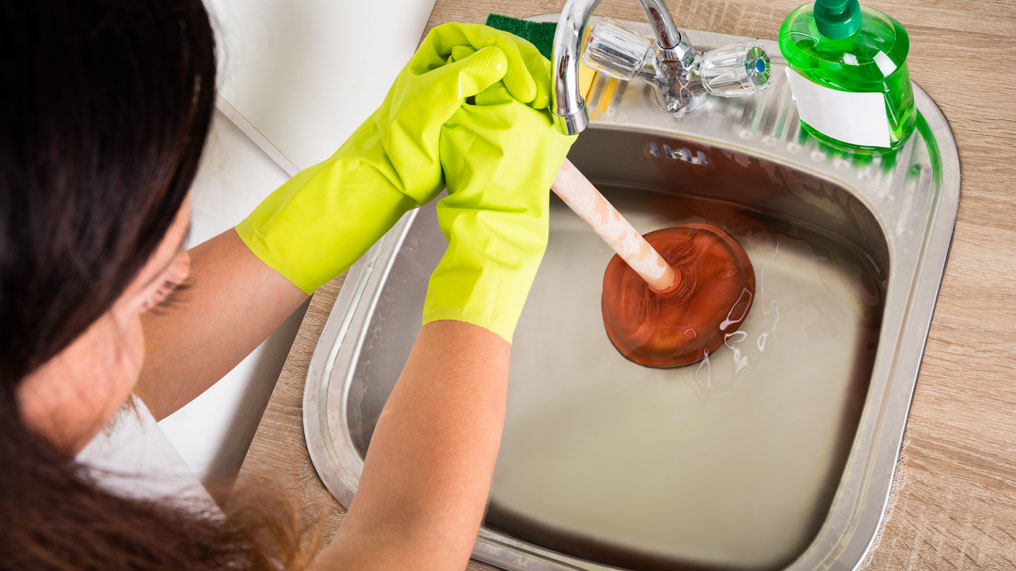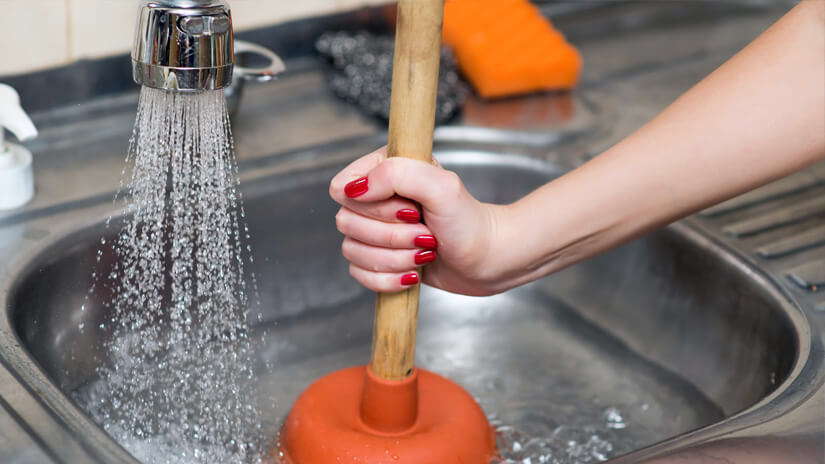Strategies to Handle a Blocked Drain Before Calling in Plumbing Professionals
Strategies to Handle a Blocked Drain Before Calling in Plumbing Professionals
Blog Article
In this article below yow will discover a lot of helpful material regarding What I learned from trying to deal with a clogged drain.

Intro
Taking care of an obstructed drain can be a frustrating experience, disrupting day-to-day tasks and potentially causing damages to your building. Nonetheless, prior to reaching out to pipes experts, there are steps you can require to address the problem on your own. In this overview, we'll explore DIY options and preventive measures to take on a blocked drainpipe successfully.
Identifying the Concern
The primary step in attending to a blocked drainpipe is recognizing the indicators. Slow-moving water drainage, gurgling sounds, foul odors originating from drains pipes, or water support up prevail indications of an obstructed drain. Identifying these indications early can assist stop additionally difficulties.
Picking the Right Pipes Solution
When choosing a plumbing service, consider elements such as experience, licensing, and customer testimonials. Choose a credible plumbing professional with a record of quality handiwork and transparent prices practices.
Cost Considerations
The expense of professional drain cleaning company can differ depending upon the severity of the clog and the plumbing technician's prices. Request quotes from numerous providers and inquire about any kind of additional charges to guarantee transparency and stay clear of surprises.
Safety and security Precautions
When attempting do it yourself drain cleaning, prioritize security. Put on safety gloves and eyewear to prevent contact with dangerous chemicals or microorganisms. Never ever mix different drainpipe cleansing products, as this can produce dangerous fumes.
Situation Studies
Real-life examples illustrate the performance of DIY solutions and the importance of prompt specialist intervention in fixing drain blockages.
Common Sources Of Obstructed Drains
Understanding the variables that contribute to drain clogs is vital for effective resolution. Common wrongdoers include hair, soap residue, grease, food particles, and foreign things like hygienic products or paper towels. Tree origins invading below ground pipes can also trigger significant obstructions.
Do it yourself Solutions
For minor clogs, several do it yourself remedies can be effective. Putting boiling thin down the drain can aid dissolve grease and debris. Sodium bicarbonate and vinegar or a combination of salt and cooking soda can work as all-natural cleaners. Utilizing a bettor or pipes serpent to displace blockages is one more choice.
Tools and Equipment
Having the right tools on hand can make DIY drain cleaning more efficient. A bettor is a functional tool for getting rid of clogs in sinks, toilets, and showers. A plumbing snake or auger can get to deeper clogs, while drainpipe cleaning chemicals can be utilized cautiously for stubborn clogs.
Safety nets
To stay clear of future clogs, taking on preventive measures is important. Set up drainpipe guards or strainers to capture hair and particles before they enter the pipelines. Consistently flush drains with warm water to dissolve grease buildup, and prevent disposing of oil or strong waste away.
When to Call a Professional
While do it yourself solutions can fix small clogs, particular signs indicate the requirement for professional assistance. Persistent clogs, foul odors despite cleansing initiatives, or multiple drains backing up all at once are warnings that necessitate professional treatment.
Verdict
By complying with the ideas detailed in this guide, you can successfully deal with blocked drains pipes and protect against future pipes problems. Whether choosing DIY solutions or looking for expert aid, timely action is vital to maintaining a healthy pipes system and preserving the honesty of your home.
How to Clear a Clogged Drain Yourself (And When to Call In the Professionals)
What Can Clog a Drain
Dirt Skin flakes Hair Grease Soap scum Food Offset pipes Tree roots Small objects Mineral buildup DIY Tricks to Unclog a Drain
You can fix this! Once you have identified the source of the clog (or have a vague idea), you can try one or a combination of these fixes in order to clear your plumbing.
Wire Hanger or Snake
Untangle and clear out hair from a drainpipe with a homemade snake. Use a straightened-out wire hanger with a 90-degree angle hook to locate the clog and drag out any unwanted material.
Remember not to push the clog further down to where the wire hanger cannot reach! If you need to follow up with a plunger, give it a try. Your efforts might be more successful after it’s been wire-snaked.
If you want to get fancy and don’t have a wire hanger to spare, head to the store and pick up a hand-operated drain snake. You can get one for $10-$30. It may save you the hassle, and provide additional length to reach deep into the clogged pipe.
Plunger
A cup plunger has a suction cup attached to a wooden handle. The rubber creates a seal around the drain, and increases the pressure force of the plunger.
Plunge for 30-second increments to loosen the clog. This may need to be repeated over the course of 15-20 minutes. Once plunged, run the water to flush the remaining material out of the drain.
Remember– never use a plunger if you have used a chemical drain cleaner. These chemicals can splash up from the force of the plunger and cause serious injury or burns.
Boiling Water
Hot water can sometimes break up materials into a flushable amount. Dirt, grease, and soap buildup requires heat in order to unstick from surfaces.
Take your kitchen kettle and heat your water to a boil. Once it reaches a rolling boil, pour it directly down the drain into the blockage. Carefully follow with plunging, if necessary.
Don’t worry if this takes more than one try! It can often take multiple kettles and repeated plunging in order to clear a particularly stubborn clog.
Chemical Drain Cleaner
As a last resort, pick up a bottle of chemical drain cleaner. Drain-cleaning chemicals are potent, and not very good for the environment.
You may need to wear protective eyewear in gloves before handling your bottle of chemical drain cleaner. Follow the instructions printed on the bottle, and flush with water as soon as the instructions allow. Do not follow with plunging.
Baking Soda and Vinegar
As a safer alternative to chemical drain cleaner, baking soda and vinegar can create a chemical reaction that clears tough clogs.
Combine one cup of cleaning vinegar with one cup of boiling water, and set aside. Once you have done this, pour half a cup of baking soda down the drain. Give the baking thirty seconds to settle and cover a large portion of the problem drain.
Following the baking soda, pour down your vinegar and hot water solution. Once the vinegar and baking soda combine, the mixture will bubble and fix. Let this reaction fizzle in the drain for about an hour.
After an hour, follow with a kettle’s worth of hot water. The heat and liquid should flush out any remaining material.
When to Call a Plumber
If your DIY attempts haven’t cleared your clog drain, it’s time to call in a professional. It’s not worth losing access to your kitchen sink or high-traffic bathroom. A clog in a vital area can keep you from the things you’d rather be doing, and derail your routine.
Anytime a clog is causing water to spread is a time to call in a plumbing service. What starts out as a little bit of water can quickly grow into serious, expensive water damage.
Additionally, a serious clog can result in burst pipes or serious leaks. Make sure you know when to take it seriously!
https://myguysnow.com/how-to-clear-a-clogged-drain-yourself-and-when-to-call-in-the-professionals/

We are very fascinated by Some easy tips to fix blocked drains and I'm hoping you appreciated the piece. Enjoyed reading our content? Please quickly share it. Help other people find it. Many thanks for your time invested reading it.
Detail Report this page